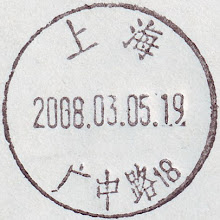
 Portugal FDC
Portugal FDC
Name: The Cork Sector
Issue date: 2007 November 28th
Cork. Gift of nature. National heritage. Ambassador of Portugal.
Cork, bark of the cork oak, is a renewable, recyclable and biodegradable product. The Quercus suber L., which Mother Nature planted essentially in southern Portugal, shapes the identity of the Alentejan landscape. Home to an infinite variety of animal and plant species, thanks to its multifunctionality, the cork oak stand prevents desertification of the south of the country - a dry region with thin top soil – by reducing soil erosion and contributing immeasurably to the local economy, not to mention its contribution to the fixation of carbon dioxide, the main cause of global warming.
Preserved by kings and governors, from the beginning of the nation to the present, the cork oak has always been protected by national legislation: the first references to cork oak and cork appeared as early as the 13th century in the charters of King Dinis, however cultivation of the cork oak stand as we know it today did not begin until the 19th century.
Rough in appearance but pleasant to the touch, cork has unique characteristics: it is light, impermeable to liquids and gases, compressible, elastic, an excellent thermal, acoustic and vibration insulator and resistant to friction. Used in a wide variety of areas, from construction to the automobile and aeronautics industries, it is best known as a wine stopper.
And if the Romans and Phoenicians used cork to seal their amphorae, it was Dom Pérignon in France who first used it systematically as a stopper for his precious nectar. But it was in Portugal that the knowledge and expertise needed to extract and transform it would be found. For historic reasons connected with port wine production, the industry established itself essentially in the north, in particular the Aveiro region, still the world centre for cork transformation and trade today.
A Portuguese ambassador, cork has carried the nation's name to the five continents and even into space. Today, Portugal is the world leader in cork production, transformation and export, placing it at the forefront of knowledge and research in the area and bestowing it with the responsibility of protecting and promoting this noble product of the Mediterranean forest.
Cork and the cork oak have inspired books, poems, songs, fashion, design and jewellery. They are part of Portuguese culture. A symbol that is now used as a base for a prestigious postage stamp, a stamp made of cork, the bark of the cork oak.
Wednesday, December 5, 2007
Portugal Cork FDC
Posted by Fan Ming at 12/05/2007 07:35:00 PM
![]() Label:
Portugal
Label:
Portugal
Subscribe to:
Post Comments (Atom)






No comments:
Post a Comment